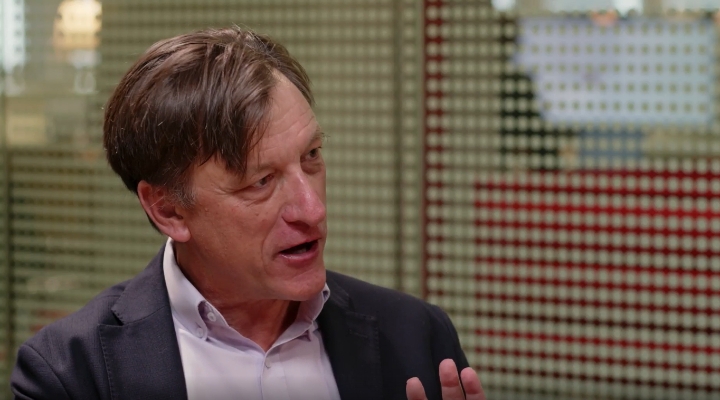The biggest fund in the UK is £20 billion large - and it's invested in bonds, a less-liquid asset. M&G Optimal Income has £20.4 billion under management, and shows no sign of slowing down.
In fact, the fund is expected to continue to attract cash across Europe – in May it was the most searched for fund on both Morningstar’s Spanish and Italian websites. For those who remember the events of July 2012 this may raise concerns. Two years ago, M&G took measures to control the flow of new money into their UK corporate bond funds. After reportedly turning down a £1 billion institutional mandate, the fixed income team got on the phone to fund platforms and discretely asked them to stop pushing clients’ money their way.
It was around this time that the Financial Services Authority also jumped in – writing to corporate bond fund managers asking for a review of liquidity in the sector and whether the situation could result in investors being denied access to their money.
The sector had become particularly illiquid after investment banks – hit by the financial crisis – stopped trading corporate bonds. Instead of offloading bonds to the likes of JP Morgan Chase and Deutsche, sellers had to find a direct buyer.
“Liquidity – when we need it, it won’t be there,” said Paul Read, Invesco Perpetual’s head of fixed interest at the Morningstar Investment Conference last month.
“If you look at a slide of the size of the corporate bond market, it has been growing for the last decade, and investment bank inventory has been sliding. The door to getting out of this market is getting smaller. We have to be very careful about managing our liquidity. As fund managers we should prioritise liquidity. It’s a drag on performance, but worth it.”
So should Optimal Income investors be worried? Morningstar analyst Karine Novak says no.
“The difference with the M&G Optimal is the flexibility. Corporate bond funds have restrictive mandates, they are only allowed a certain duration spread, and must be 80% invested in UK listed investment grade bonds. Optimal can hold up to 20% in equities and hold global bonds – as long as they are hedged back to sterling,” she said.
This diversification means that the fund is more liquid – and size is less of a worry. Novak suggests that should the Silver Rated fund become much bigger, they could always re-categorise it as a global bond fund, to increase their options.
The Optimal Income mandate is already becoming increasingly global, and in terms of global bond funds, the M&G is a minnow. Both PIMCO and Franklin Templeton run global bond funds – domiciled in the US – that exceed £100 million under management.
But in order for M&G Optimal to take a truly global approach it may have to change category, and manager Richard Woolnough would have start taking currency calls on internationally domiciled bonds, rather than hedging them back to sterling – potentially adding another layer of risk.
Woolnough’s colleague Jim Leaviss also might have something to say about it, as he runs the much smaller M&G Global Macro Bond fund, which would be at risk of being cannibalised at just £1.1 billion.
What about Equities?
It isn’t just bond funds that can get too big to manage. Under Neil Woodford, the Invesco Perpetual Income and High Income funds swelled to an incredible £24 billion under management between them.
While the funds took a hit after his departure – losing £4 billion in business – they are still the third and sixth biggest funds in the UK. Further outflows are expected once Woodford Equity Income opens its doors on June 19 posing fresh challenges to the successive fund manager Mark Barnett.
“Before Woodford left, some people did raise concerns about how such a large fund could be nimble,” said Mark Dampier of stockbrokers Hargreaves Lansdown.
“Now, I’d say Barnett’s biggest challenge is managing outflows. The two income funds have been recording net outflows for a while. The funds are mature, meaning there is a problem with natural attrition of investors but over the next year I expect a considerable number of investors will move to Woodford Equity Income.”
Equity funds which focus on a best ideas approach face challenges if they become too big. If you only have 25 holdings, and an open-end structure means you can’t control inflows without placing restrictions on the fund money in can be a problem. Rules stop fund managers owning too much of any one company, and from one company making up too much of the fund.
This is not a concern with Woodford’s old or new funds however – which are expected to have a considerable portfolio overlap. Woodford had around a third of his portfolio in pharmaceutical stocks for example, which are among the largest companies in world.
What should concern new Woodford Equity Income investors are market makers. As the fund manager has been open about the type of stocks he will be investing in, some savvy traders are buying up defensive stocks such as those in the pharmaceutical and tobacco sectors to push up the price for the June 19 launch.
“In order to manage the risk traders present to the fund ideally Invesco Perpetual and Woodford Funds would come to an agreement about managing flows between them,” said Dampier.
“It would be beneficial for both sets of investors. Woodford is the more liquid of the two, with all that cash ready to invest – but he does like to be fully invested so it makes sense they communicate.”































